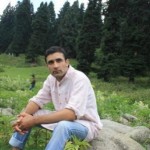The 21 year long insurgency in Jammu and Kashmir has left over 70,000 dead and 8,000 have gone missing while in prison. Sajad Rasool brings us these untold stories. Here he shares his experiences while making the video Missing Persons in Kashmir.
I first heard of Mohammad Shafi Lone and his wife Shakeela in June 2011. I was talking to Parveena Ahangar, who heads the Association of Parents of Disappeared Persons (APDP), and she mentioned the case to me. I remember being shocked. What really shook me was the proximity of it all. Wagar is the neighbouring settlement to mine, and yet I had never heard of the affair. It was a harsh reminder of just how pervasive, how commonplace, loss and suffering have grown in Kashmir. If I could be ignorant of a disappearance like this in what was practically my own backyard, how many other unremarked, unreported incidents must there be in the whole territory?
This was one of my first videos, and it was to share stories like this that I became a journalist. In Kashmir every family has a tale of woe, and most of them remain untold. From a paradise on earth, my state has been transformed into a land of widows and orphans. Each street has been washed in the blood of innocents. I know this because I myself grew up in the shadow of guns.
While Kashmir is frequently in the headlines, reports rarely scrape past the surface. I started my own career in the mainstream media, but was left dissatisfied. Rife with commercialism and internal bias, it had no room for real stories. In a world chasing sensationalism, nobody cared about impact or change or the individual behind the statistic. This was why I decided to join VV. What I valued above all else was the human element, and this could only be treated in an alternative environment. I wanted to give voice to the countless issues overlooked by the mainstream.
Shakeela’s tragedy was one such issue. Her husband had gone missing one day in October of 2002, and had never been seen since. Nine years had passed without any word of his whereabouts. The couple had three daughters. Shakeela now lived with these girls in a state of permanent limbo, at a crossroads between hope and despair.
Filming that video was not easy. It meant dredging up the past and scratching at a wound that had never been given a chance to heal. I talked to Shakeela for quite some time before taking out my recording equipment. I wanted to put her at ease, make sure that she was comfortable with me and what we were doing. When she opened up, I felt awful making her relive those nightmarish memories. She cried, as did her daughters. Even I had tears in my eyes and had to stop the camera.
My main emotions regarding that story are shock, sadness, and a sense of incompletion. Incompletion possibly because it had no ending, no real closure. Mohammad Shafi Lone was missing, he had been for many years. There was no way to ascertain whether he was dead or alive. The issue could not be buried. All one could do was wait. But I also felt that the video was imperfect in some aspects. I made it very fast, in less than two hours. The subject matter was complex and worthy of more detailed treatment. There was so much to Shakeela, and then the daughters were characters in themselves. If I had stayed longer, I could have got better shots, captured more intimate moments. But I didn’t feel good being there, it didn’t seem right. People’s feelings also have to be taken into account after all.
One day, however, I plan to make a documentary film on the missing persons of Kashmir. Mohammad Shafi Lone was only one in over 10,000 since the start of the insurgency in the 1980s. The depth of this terrible conflict needs to be catalogued, with its ravages on the daily lives of the populace. History has played a huge role in Kashmir, and the present cannot be understood without reference to the past. It is a narrative of epic proportions. And as a Community Correspondent with VV, I would like to recount this narrative through the eyes of the valley’s residents.
The happiness that comes with an yearly bonus
This video is a story of success, a story of a small win against a giant corporation. A story of persistence and a never-say-die attitude. This year, the workers of 3 gardens in the Alipurduar area of Kumargram Block, received a slightly increased yearly bonus, an increase of 3%, from...
#kNOwTrafficking – a campaign against human trafficking
Video Volunteers launched an online and offline campaign called “#kNOwTrafficking- Taskari Jaano, Taskaari Roko'' on July 18, 2022.

